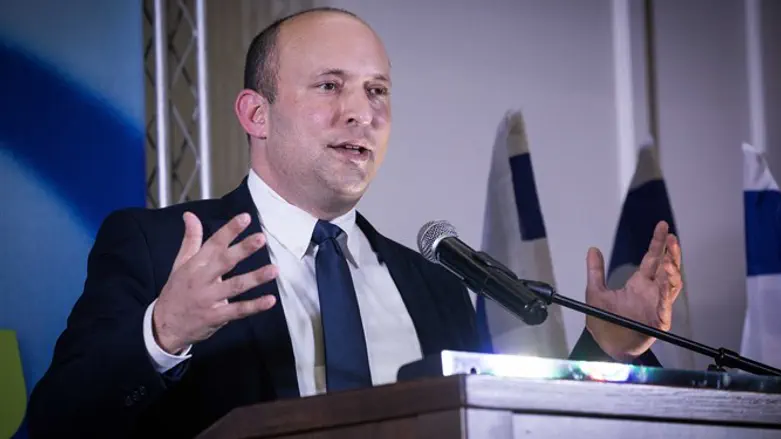
Bennett is in high spirits: "We've crushed the Delta variant," he told the Sunday Times in an interview.
Now that the economy is booming and the government is predicting a 7.1 per cent annual growth rate, he is setting his sights on the potential gain due to this growth. “We’ve crushed Covid,” he announces.
Ahead of his departure today for the UN Conference on Climate Change - Prime Minister Naftali Bennett says in an interview with the Sunday Times: "There is tremendous potential in the Middle East for the creation of partnerships in the field of energy... And energy means water."
Bennett, above all, Bennett sees Israeli technology and grand climate projects as a way for Israel to advance its policies in the Middle East.
Bennett continues: “This strong growth, beyond increasing prosperity for Israelis, has allowed us to massively invest in strengthening our military capabilities, both offensive and defensive capabilities. It’s no secret, Iran is now at their most advanced point of capability to enrich uranium.”
“We have a cold war with Iran,” Bennett says. “For the last 30 years Iran positioned around us to distract us.
Israel is making no secret of having updated its strike plans against Iran’s nuclear installations. Bennett is promising to do whatever is necessary to neutralize this threat. His plan is to outspend Iran. This model is similar to President Ronald Reagan's strategy of bankrupting the Soviet Union and ending the Cold War.
“The parallel is what Reagan did. Reagan didn’t have to bomb Moscow. There’s a regional power called Iran and there’s a regional power called Israel. Iran is a rotten regime, violating human-rights and
killing homosexuals and women who go around uncovered, while they can’t even supply clean water to their citizens, but invest their resources in nuclear development," says Bennett in the Sunday Times interview.
Bennett says he is already in discussions with some of the countries in the region on such networks. He acknowledges that water was one of the topics dominating his meetings so far with Arab leaders. His first visit outside Israel after coming to office was to Jordan’s King Abdallah in Amman, where Bennett offered to double the amount of water that Israel pumps annually from the Sea of Galilee. Water also came up in Bennett’s visit with President Abdel Fattah al-Sisi of Egypt, who is concerned that a new dam being built by Ethiopia on the Nile could limit his country’s water supplies.
“We have an interest that the peace we have with Jordan and Egypt will trickle down also to benefits for consumers so they literally reap the fruits of peace,” Bennett says. “Until now, the peace with our
neighbors has remained at the diplomatic-political level but the fruits didn’t trickle down.”